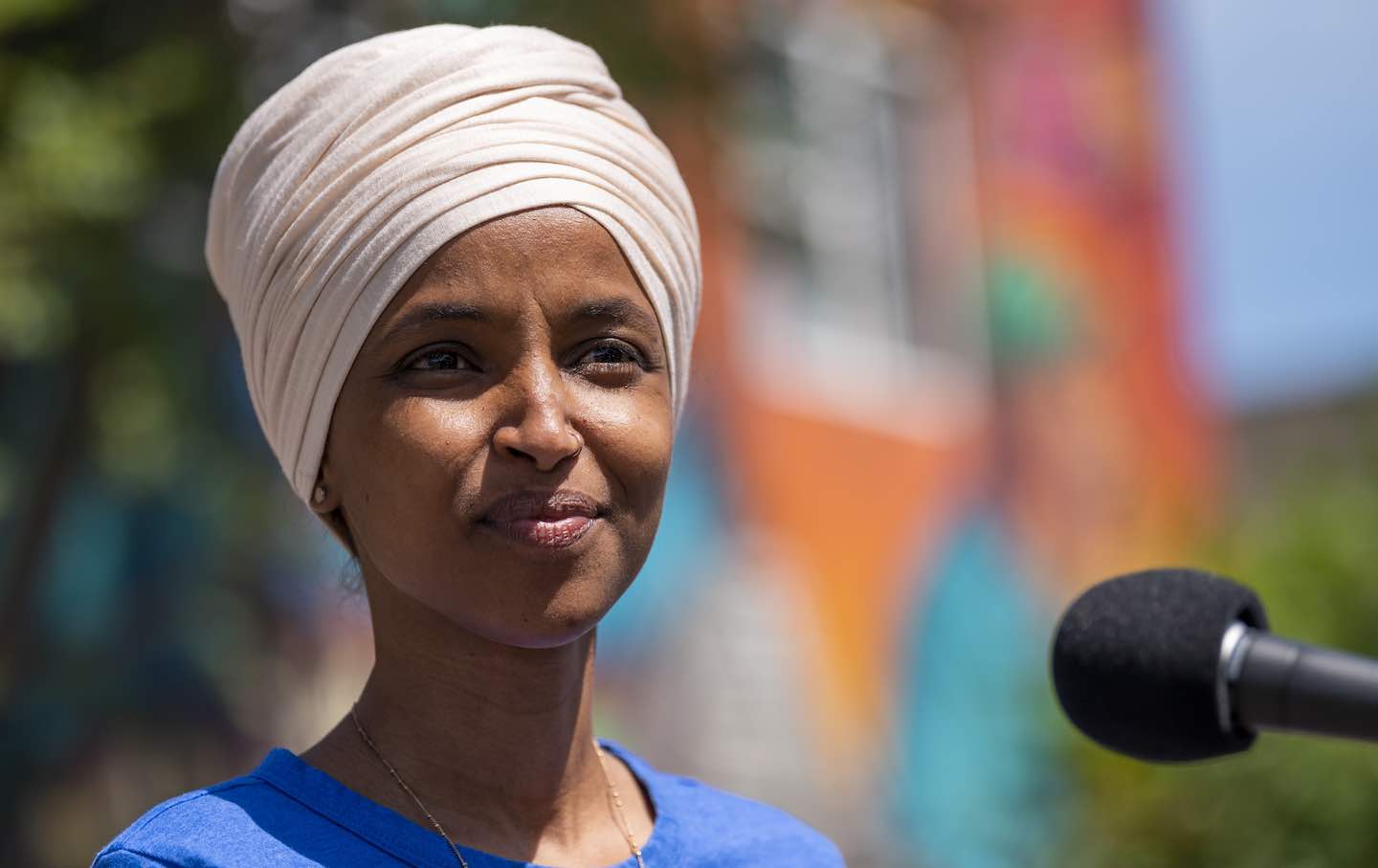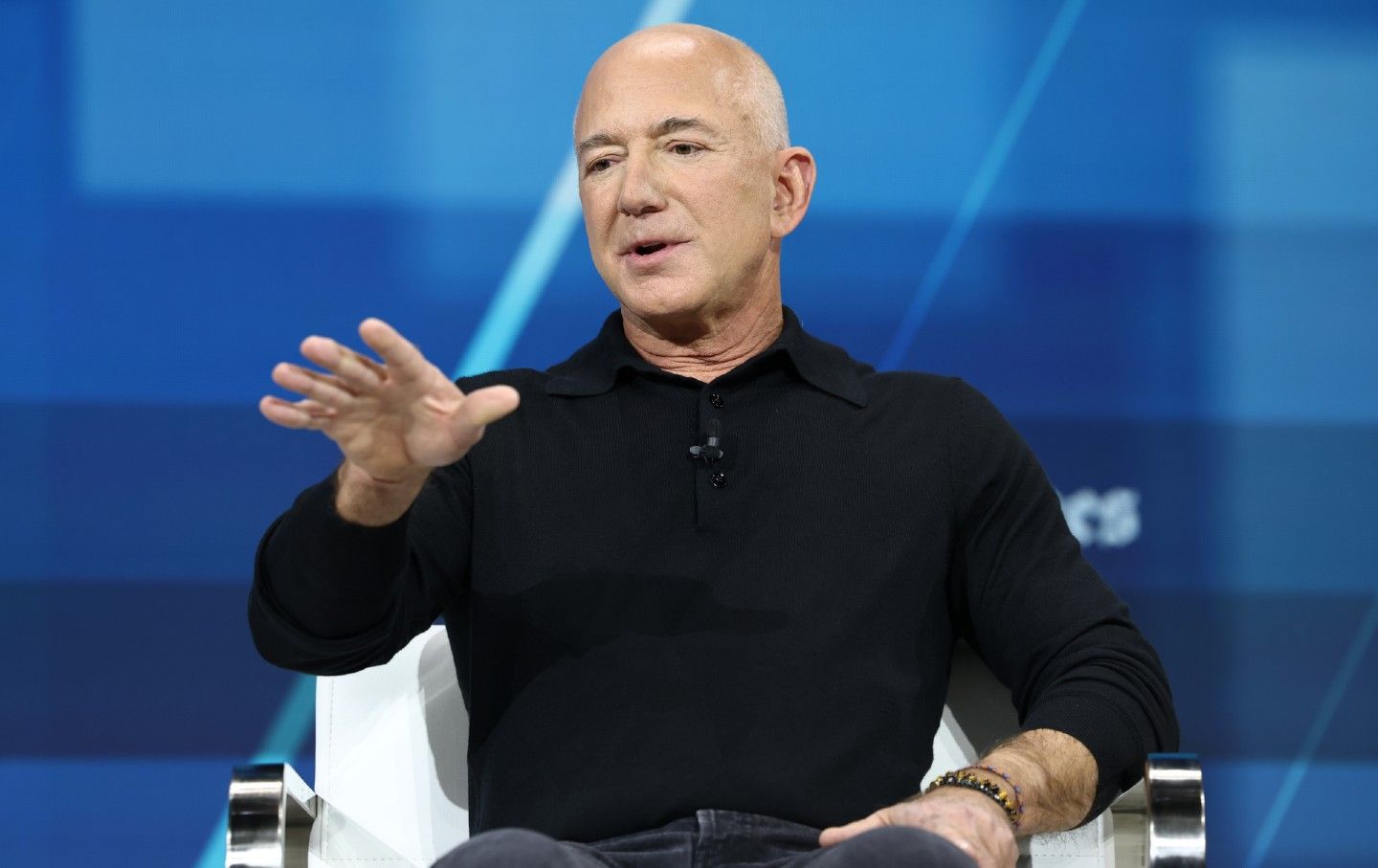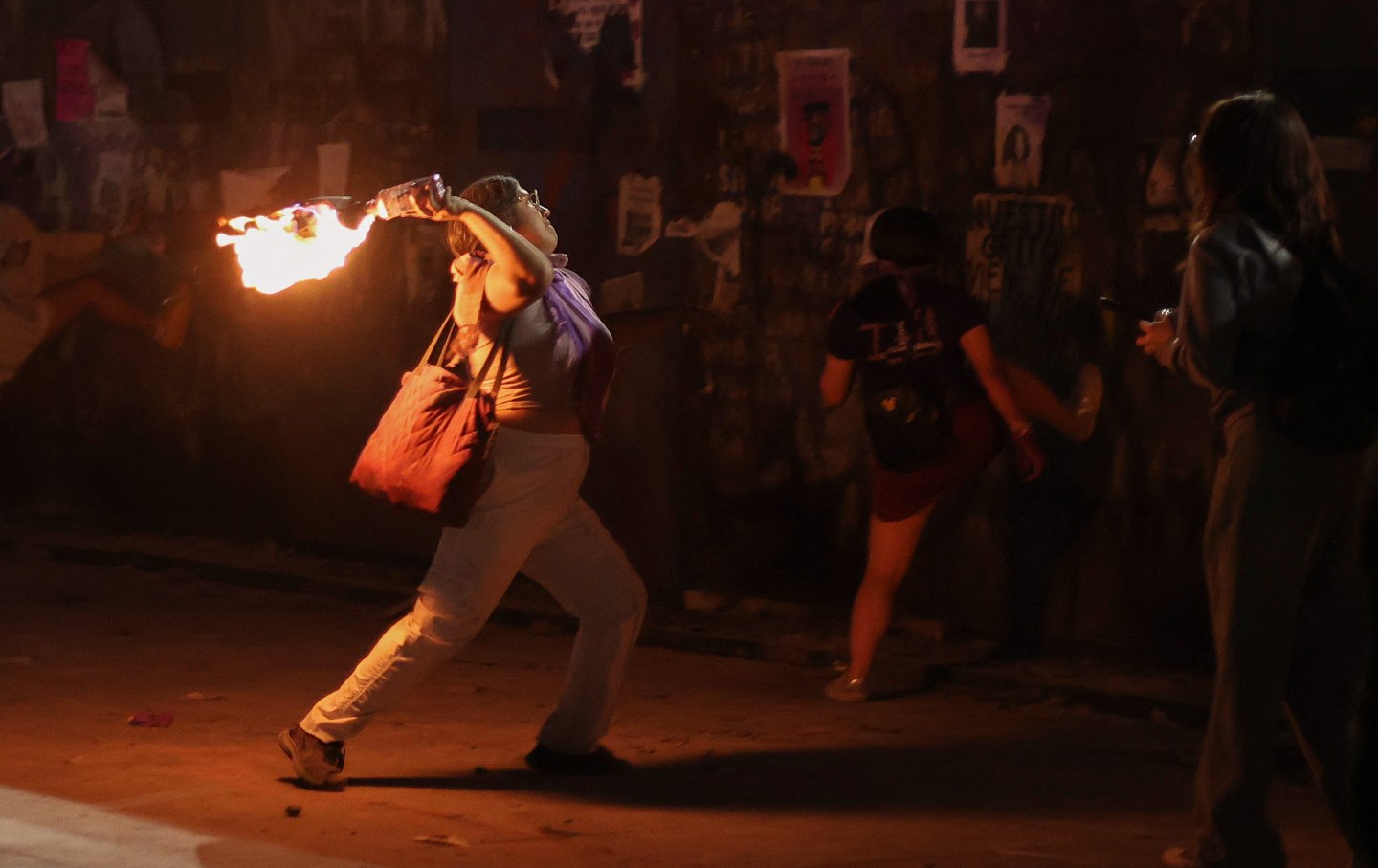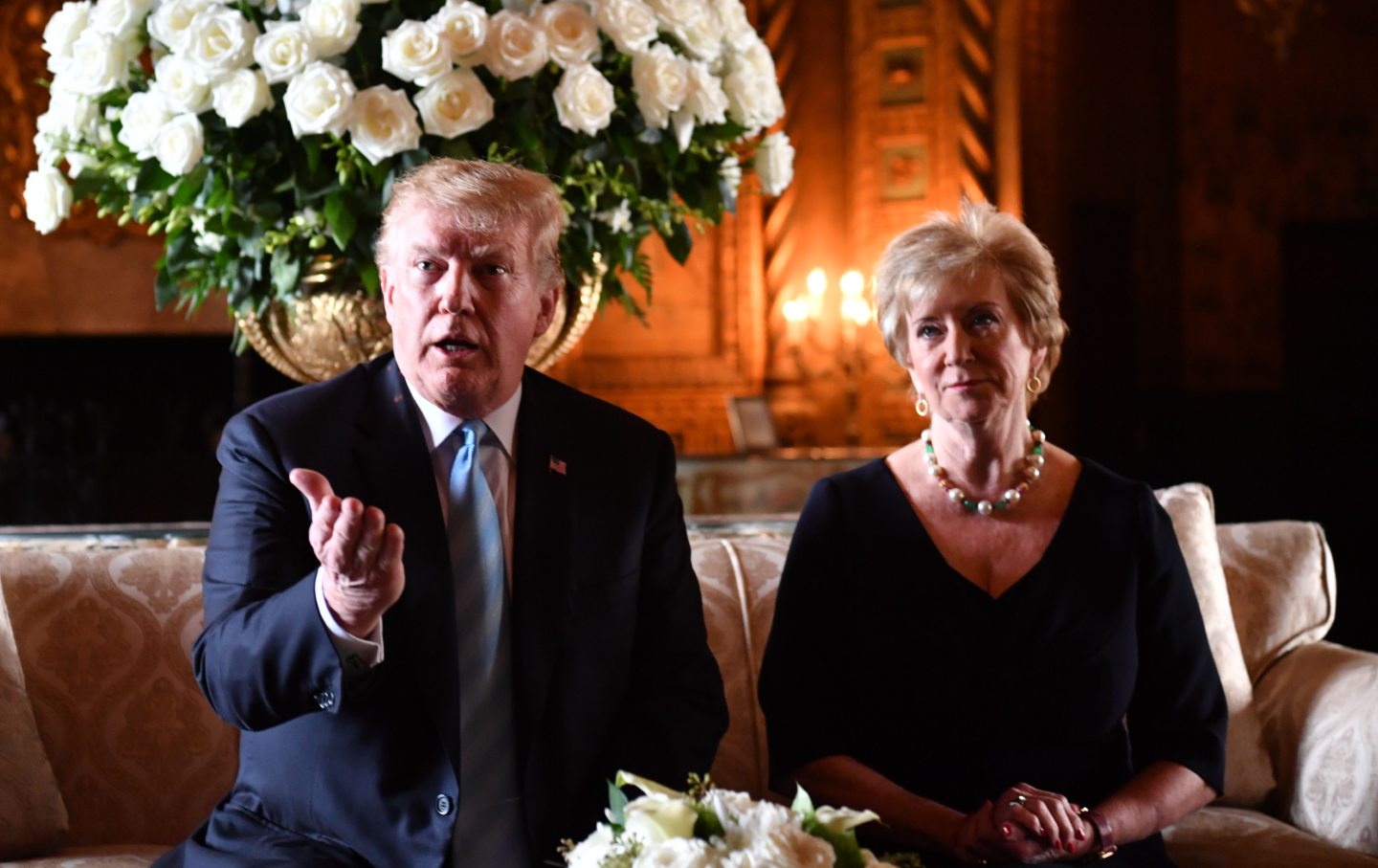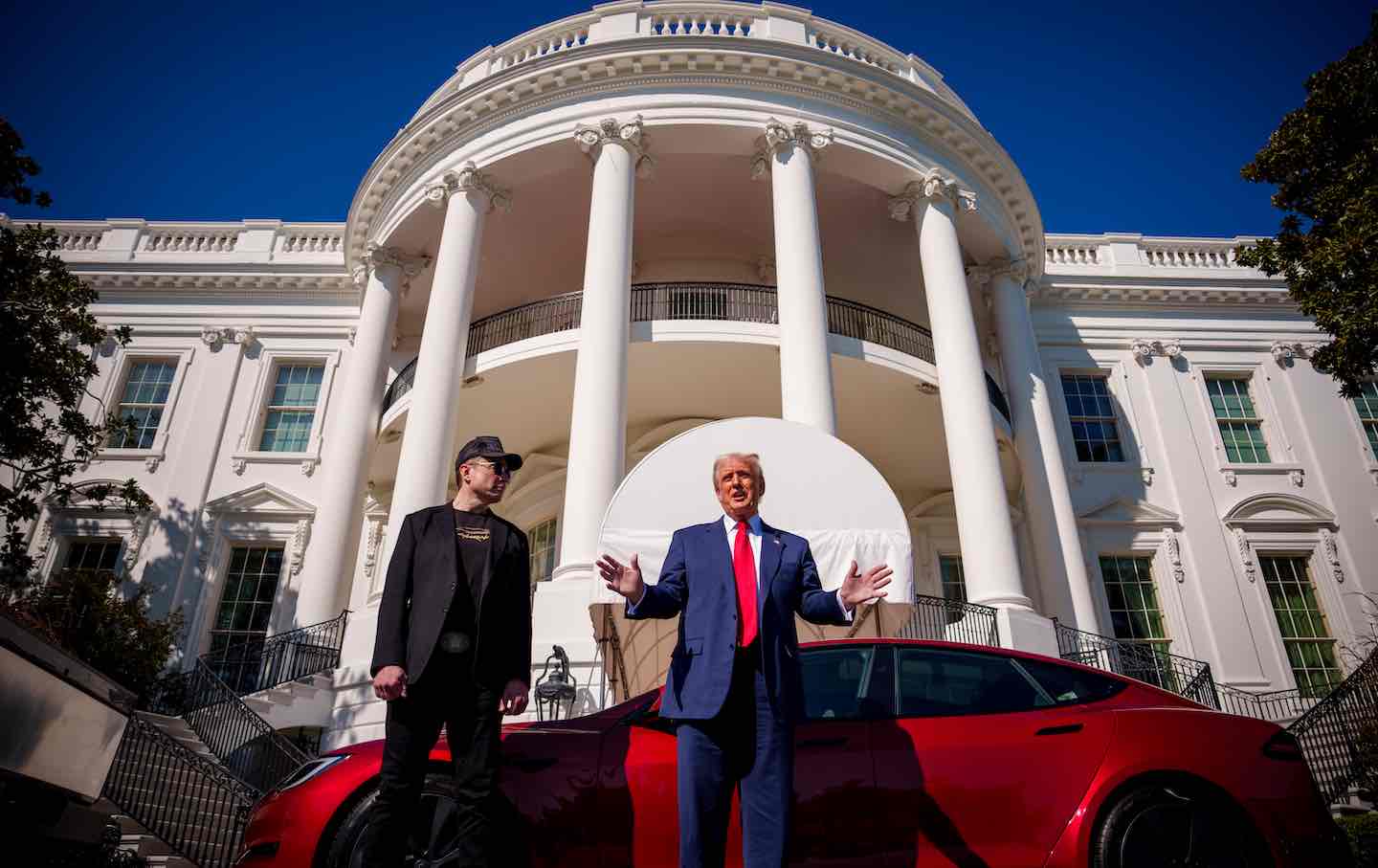Will White Women Finally Wise Up to Trump’s BS?
Is this a “Boys vs. Girls Election,” or yet another in which white women stick with white men?
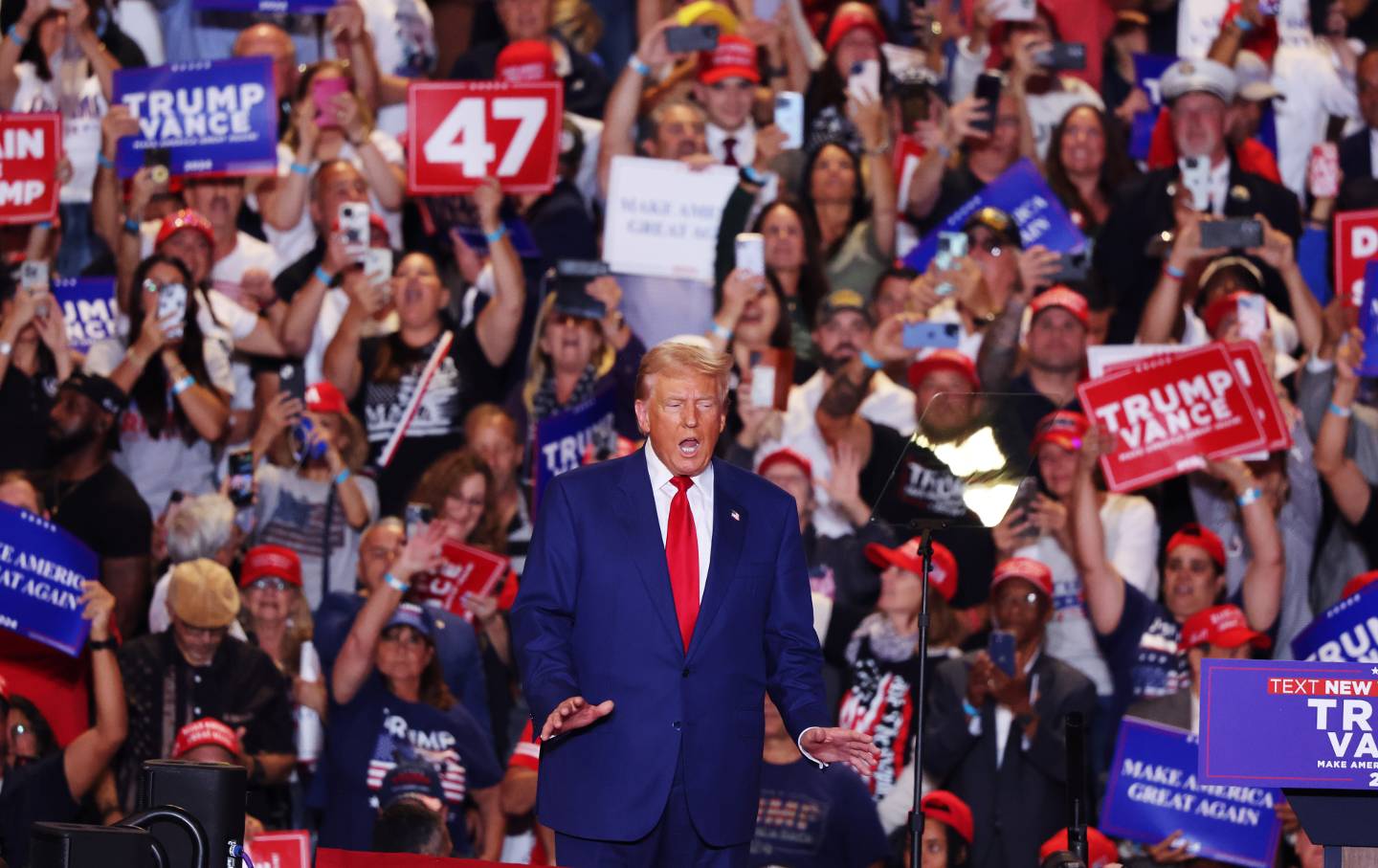
Ever since Kamala Harris’s candidacy put Democrats in array, there’s been a running joke online that Donald Trump is going to say the N-word—that is, in public—before the presidential election. It’s a kind of gallows humor, sure, but given Trump’s legendary bigotry, his sputtering meltdowns in recent weeks, and the racism and sexism he has already spewed at Harris, it’s a well-founded expectation. Trump has repeatedly called Harris a “bitch” in private, according to The New York Times, and he has publicly denigrated her as “lazy,” “a bum,” “stupid,” “real garbage,” and regarded as “a play toy” by foreign leaders. (“And I don’t want to say as to why,” he added, unsubtly. “But a lot of people understand it.”) After lying that Harris, the first Black woman and the first South Asian presidential nominee of a major party, was hiding part of her racial identity before deciding to “turn Black,” Trump promoted right-wing conspiracy theories about Harris being ineligible to run for president—a return to the racist birtherism that launched his political career.
It might seem that Trump’s blatant misogyny toward Harris—or, more accurately, misogynoir, a term describing this brand of commingled anti-Black racism and misogyny—would persuade women to cast their ballot for someone, anyone, else. And for many women, it has. After President Biden stepped aside and endorsed Harris as the Democratic nominee, 68 percent of women voters in the five battleground states of Arizona, Michigan, Nevada, Pennsylvania, and Wisconsin said they were now more motivated to vote, according to an EMILYs List poll. An early August Times/Siena College survey found Harris getting 56 percent of women’s votes in Michigan, Pennsylvania, and Wisconsin to Trump’s 35 percent. A Quinnipiac University poll from mid-August found that 54 percent of Pennsylvania women planned to vote for Harris. And in a national Economist/YouGov poll from right before the Democratic National Convention (DNC), just over half of women polled said they supported Harris.
But headlines calling this the “Boys vs. Girls Election” don’t exactly tell the full story. Because pretty much as a rule, to stick with the parlance of such headlines, white girls—who, as 40 percent of the electorate, make up the largest single bloc—ally with white boys to vote Republican, while Latinx, Asian American, and Black women overwhelmingly vote Democrat, according to the Center for American Women and Politics at Rutgers. Only twice since 1952 have a larger share of white women voted for the Democratic candidate, going for Lyndon Johnson in 1964 and Bill Clinton in 1996. In 2016, 47 percent of white women voted for Trump instead of the first potential woman president, Hillary Clinton. In 2020, white women turned out in even larger numbers for Trump, choosing the pussy-grabber over Biden, 53 to 46 percent.
Lest it seem that white women’s game might have changed after the Supreme Court struck down Roe v. Wade—a reversal Trump has not only taken credit for but bragged about—consider that a larger share of white women have voted for Republicans since then. In the 2018 midterm elections, 49 percent of white women voted for the GOP. That figure increased to 55 percent in the 2022 midterms, just months after the rollback of reproductive rights.
There are schisms here, to be fair: Younger white women and white women with college degrees are far more likely to break for Harris. But white women have consistently voted in favor of preserving the benefits they receive from white supremacy, even if it costs them their already compromised rights as women. That solidarity, recent voter patterns indicate, includes white men committed to MAGA identity politics and the belief that white masculinity can only be salvaged by embracing a rapey machismo steeped in racist misogyny.
Trump is sure to hurl plenty more misogynoir at Harris, and there’s reason to wonder if, as the post-DNC bounce fades and the race tightens, those attacks will turn off more and more white women. After all, Trump has told people close to him that he bears too much animus toward Harris to comply with the pleas of Republicans urging him to let up on the personal attacks. That’s likely not only because he believes the gendered racism he spews at Harris, but because his goal is to get voters to view her through sexist and racist stereotypes. In that messaging, he’s aided by MAGA’s white women—Georgia Representative Marjorie Taylor Greene labeling Harris a “DEI hire,” ex-Trump adviser Kellyanne Conway asserting that Harris “does not speak well” and “does not work hard,” and, most delusionally, Megyn Kelly advancing the ridiculous idea that Harris somehow slept her way to the top of a major party’s presidential ticket.
“Unfortunately, we know what comes next. We know folks are going to do everything they can to distort her truth,” Michelle Obama rightly stated at the DNC. “It’s his same old con—doubling down on ugly, misogynistic, racist lies as a substitute for real ideas and solutions.” It’s precisely this knowledge that contributes to the 71 percent of Black women who believe the 2024 elections are more important than past elections, according to the Highland Project. The same study found some 80 percent of Black women worry that Harris will be subjected to racist attacks. It’s worth remembering that in 2016 pre-election surveys and in exit polls, Black women expressed more fear about a Trump presidency than any other group.
Could Harris make inroads with white women against the candidate who, in 1992, advised that women should be treated “like shit” and, nearly three decades later, was found liable for sexual abuse by an overwhelmingly male jury? As we speed toward the election, maybe Trump’s brand of vitriol will finally cost him with a voting group that should have shunned him long ago.
Support independent journalism that exposes oligarchs and profiteers
Donald Trump’s cruel and chaotic second term is just getting started. In his first month back in office, Trump and his lackey Elon Musk (or is it the other way around?) have proven that nothing is safe from sacrifice at the altar of unchecked power and riches.
Only robust independent journalism can cut through the noise and offer clear-eyed reporting and analysis based on principle and conscience. That’s what The Nation has done for 160 years and that’s what we’re doing now.
Our independent journalism doesn’t allow injustice to go unnoticed or unchallenged—nor will we abandon hope for a better world. Our writers, editors, and fact-checkers are working relentlessly to keep you informed and empowered when so much of the media fails to do so out of credulity, fear, or fealty.
The Nation has seen unprecedented times before. We draw strength and guidance from our history of principled progressive journalism in times of crisis, and we are committed to continuing this legacy today.
We’re aiming to raise $25,000 during our Spring Fundraising Campaign to ensure that we have the resources to expose the oligarchs and profiteers attempting to loot our republic. Stand for bold independent journalism and donate to support The Nation today.
Onward,
Katrina vanden Heuvel
Editorial Director and Publisher, The Nation

